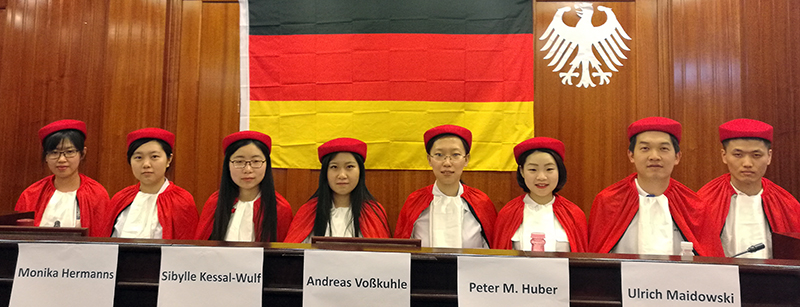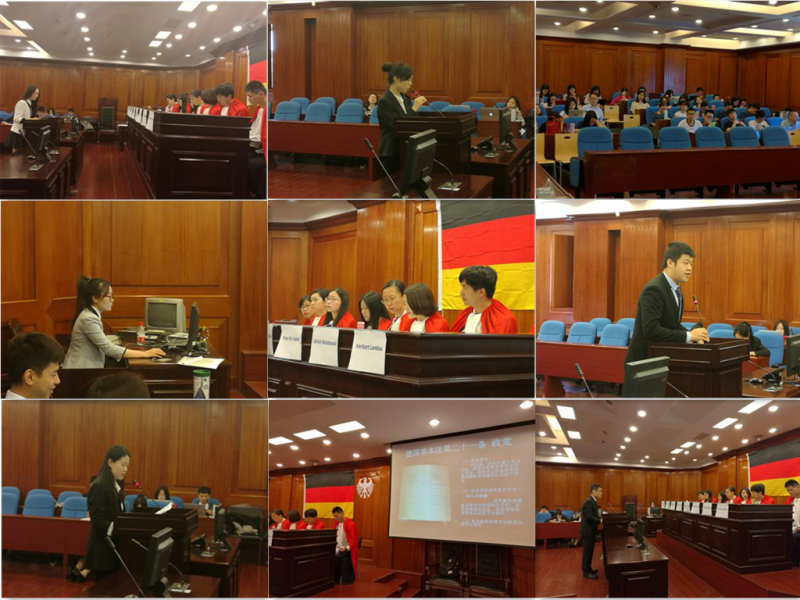Should Germany’s Federal Constitutional Court ban the National Democratic party of Germany (NPD)? How do the judges litigate this case? The China-EU School of Law’s master’s students in the Chinese Law programme discussed this in a moot court on 18 May 2016. They had prepared for the mock trial with their Prof. Zheng Yongliu and lecturer Dr Yu Fei who teach the “Constitution and Constitution Litigation” course. This course gives an overview on the basic values of national identity and constitutions, explains the theory of basic rights and aims at enabling students to both apply constitutional litigation and compare it to contemporary China. The course consists of 12 sessions with 8 lectures and 4 moot courts. The ninety-nine students were divided into four teams so that each team can litigate one moot court.

(Master’s students (from the left to the right) WangYuexiao, Wang Yan, Lu Qing, Li Yifan, Gao Shang, Zeng Dong, Min Yeming and Zhang Chi acted as judges of the German Federal Constitutional Court)
Student Zhang Zebin introduced the case to the audience as the host of the moot court. The case of this moot court is dealing with the background of Bundesrat(German Federal) Council asking the German Federal Constitutional Court to assess whether the National Democratic Party of Germany (or NPD in short, hereafter NPD) is unconstitutional. The case is currently pending in Germany. In 2003, a previous attempt to dissolvee the NPD failed because too many leading figures of the party were at the same time registered as intelligence agents with the German authorities and that the court could not distinguish between government initiated activites and the actual party. In 2013, the German Federal Council again asked the German Federal Constitutional Court to ban the NPD and on 1 March 2016, the court started hearing the case for three days. The final decision is expected to be announced soon.
Then the court clerk announced “stand up” and master’s students Wang Yuexiao, Wang Yan, Lu Qing, Li Yifan, Gao Shang, Zeng Dong, Min Yeming and Zhang Chi entered in their robes acting as the eight judges. They opened the trial.
The whole moot court was composed of two parts. Part 1 were pretrial procedures involving jurisdiction and hearing the case. Part 2 were trial procedures.
In Part 1, the court debated vehemently five issues. “This intense debate was the climax of the whole trial”, student Song Wei later said. After the first part, the trial was adjourned so that the judges decided on their judgment. According to Article 15 of the Law on the Federal Constitutional Court, an effective judgement to dismiss the NPD has to be decided by a majority of the judges.
Finally, the judges announced that the NPD should not be banned. The eight judges voted 5 versus 3, five judges disagreeing on banning the NPD and the other three judges agreeing on it. The judges read out their reasons for the verdict and the dissenting opinion. After that, the moot court was closed after two and a half hours.

Artilce by Song Wei, CESL Master student from 2015 intake
Photographs by Li Qingchuan, CESL Master student from 2015 intake
